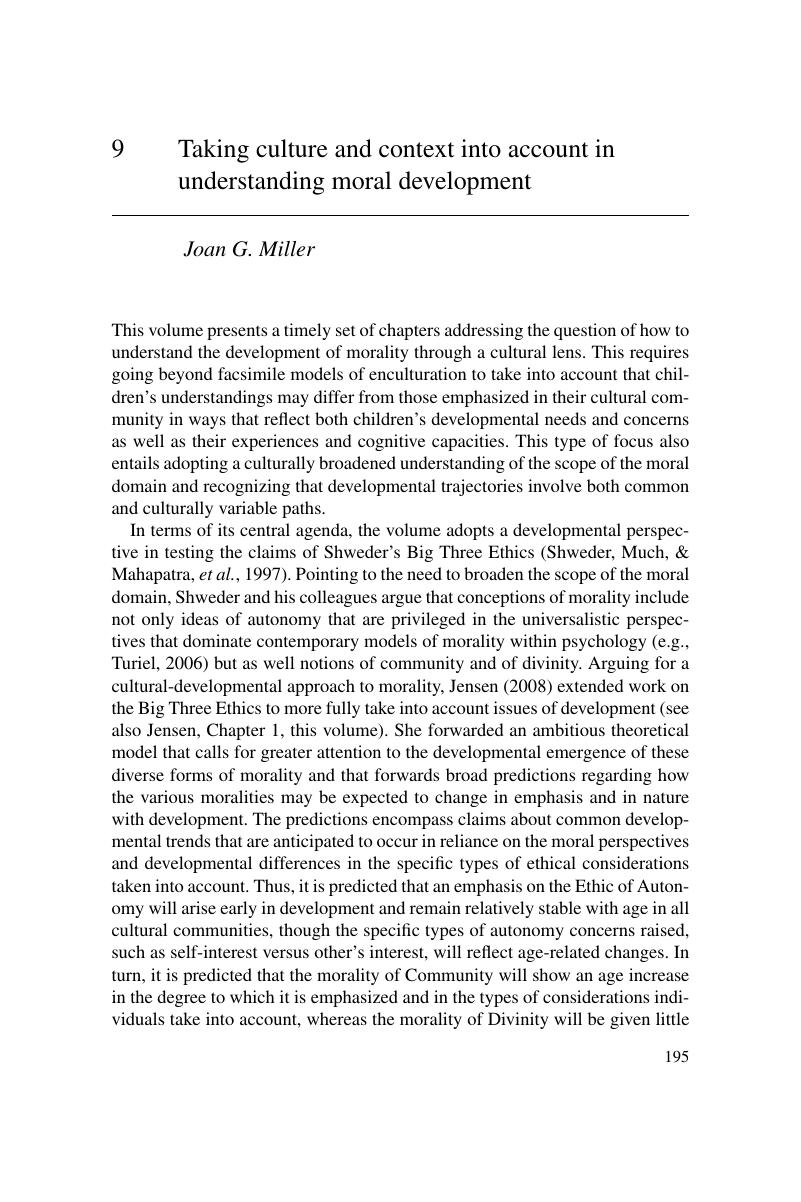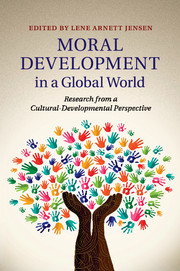Book contents
- Moral Development in a Global World
- Moral Development in a Global World
- Copyright page
- Contents
- Contributors
- Foreword
- Book part
- 1 Theorizing and researching moral developmentin a global world
- 2 Divinity in children'smoral development: an Indian perspective
- 3 Finnish moral landscapes: acomparison of nonreligious, liberal religious, and conservative religious adolescents
- 4 An Indianmoral worldview: developmental patterns in adolescents and adults
- 5 Moral worldviews of American religious emerging adults: three patterns of negotiation between development and culture
- 6 Investigating thethree ethics in emerging adulthood: a study in five countries
- 7 The dynamics of ethical co-occurrence in Hmong and American evangelical families: new directions for Three Ethics research
- 8 How liberalsand conservatives are alike and apart: a research autobiography
- Commentaries
- 9 Taking culture and context into account in understanding moraldevelopment
- 10 The next step for the cultural-developmentalapproach: from moral reasoning to moral intentions and behavior
- Book part
- Index
- References
9 - Taking culture and context into account in understanding moraldevelopment
from Commentaries
Published online by Cambridge University Press: 05 May 2015
- Moral Development in a Global World
- Moral Development in a Global World
- Copyright page
- Contents
- Contributors
- Foreword
- Book part
- 1 Theorizing and researching moral developmentin a global world
- 2 Divinity in children'smoral development: an Indian perspective
- 3 Finnish moral landscapes: acomparison of nonreligious, liberal religious, and conservative religious adolescents
- 4 An Indianmoral worldview: developmental patterns in adolescents and adults
- 5 Moral worldviews of American religious emerging adults: three patterns of negotiation between development and culture
- 6 Investigating thethree ethics in emerging adulthood: a study in five countries
- 7 The dynamics of ethical co-occurrence in Hmong and American evangelical families: new directions for Three Ethics research
- 8 How liberalsand conservatives are alike and apart: a research autobiography
- Commentaries
- 9 Taking culture and context into account in understanding moraldevelopment
- 10 The next step for the cultural-developmentalapproach: from moral reasoning to moral intentions and behavior
- Book part
- Index
- References
Summary

- Type
- Chapter
- Information
- Moral Development in a Global WorldResearch from a Cultural-Developmental Perspective, pp. 195 - 203Publisher: Cambridge University PressPrint publication year: 2015
References
- 3
- Cited by

